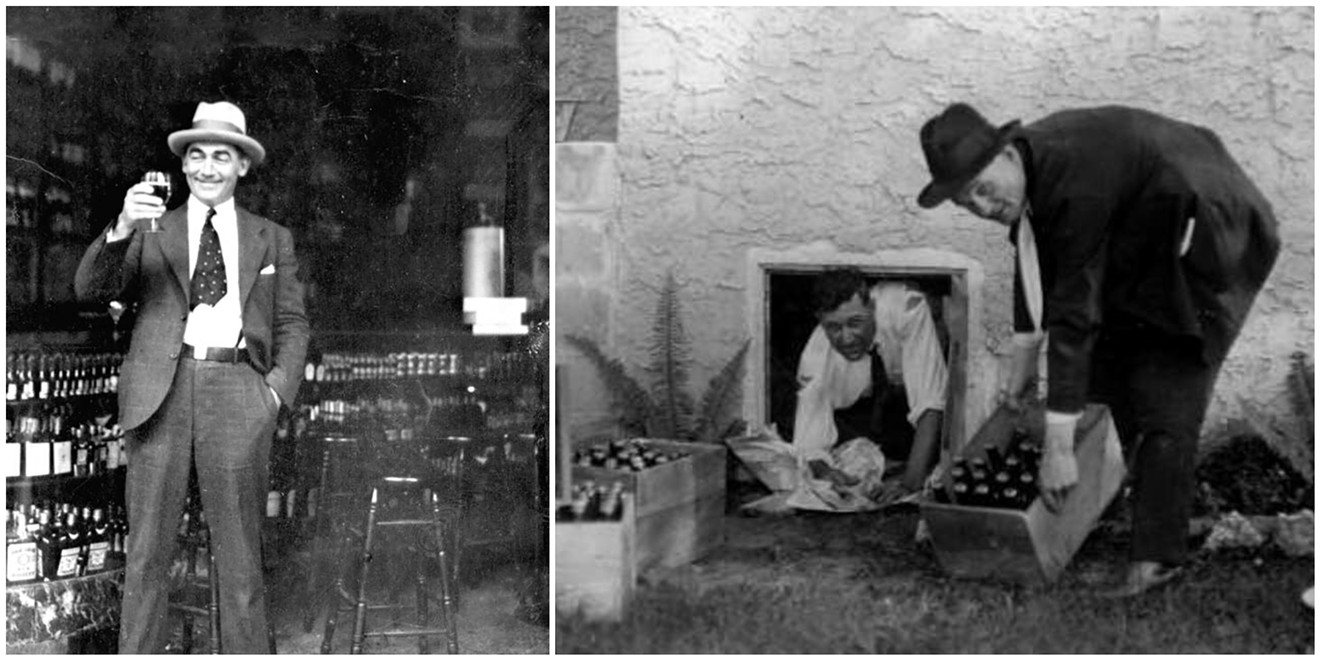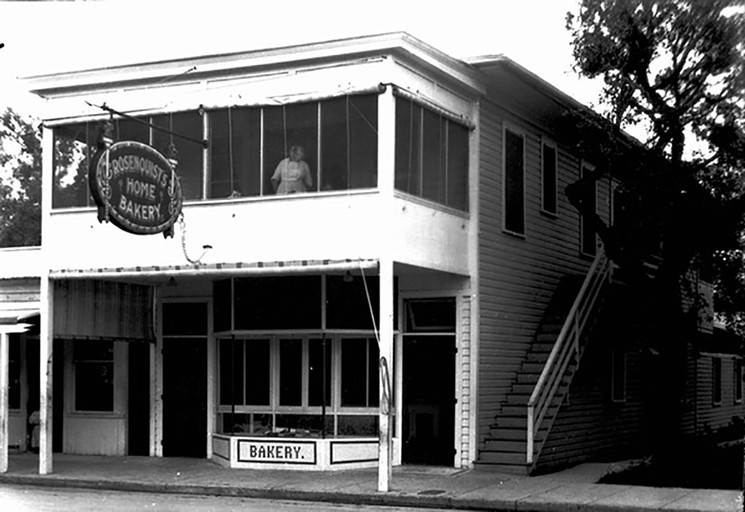Throughout its 123-year history, Miami's economy has centered around tourism. Whether hosting massive EDM concerts in its most prominent park or allowing raucous nightclubs to stay open all hours of the night, city leaders have long believed in giving tourists what they want.
Like today, the tourists of a hundred years ago came to the Magic City for a good time, which of course included alcohol. While there was first a countywide ordinance, then later a constitutional amendment that banned the sale and consumption of alcohol, most of Miami largely ignored the law.
While nationwide Prohibition was officially implemented on January 1, 1920, Miami had already enacted a countywide prohibition six years earlier. On a rainy night in October of 1913, Dade County voted itself dry. At that time, the county spanned from today's South Dade to the southern portion of what is now Palm Beach County. The more rural areas of today's Broward County voted heavily in favor of banning the sale and consumption of alcohol, whereas residents of the City of Miami were strongly opposed. In the end, the "drys" defeated the "wets" by 116 votes.
While some saloon owners in downtown Miami continued to operate as if it were business as usual, national Prohibition required more discretion following its implementation in 1920. It was believed the 18th Amendment, also known as the Volstead Act, would end the scourge of alcohol consumption once and for all. Instead, the law was loosely enforced and gave rise to an underground syndicate of organizations that would fill America's unquenchable thirst for booze.
Once city officials were forced to enforce Prohibition, bootleggers took more precautions when importing and transporting alcohol around Miami. The proximity of the Bahamas and Cuba made access to alcoholic beverages very convenient. Drop-off points for illegal contraband were numerous and sometimes protected by local law enforcement for a fee.
Booze was left along the Miami River, at private docks on SE Eighth Street and along Biscayne Bay behind the beautiful mansions on Brickell Avenue. Bootleggers would sell bottles of booze hidden in rumble seats of parked cars on Flagler Street despite the openness of the transaction. The sale and consumption of alcohol occurred anywhere that local law enforcement would turn a blind eye.
Proprietors of legitimate businesses also set up hidden rooms to meet the demand for liquor. Rosenquist Bakery operated a speakeasy on the second floor above where bread and other baked goods were sold. If one had the right password, they would get access to enjoy their favorite alcoholic beverage without fear of reprisal. The property where Karl Gunnar Rosenquist operated his bakery later became the famous Tobacco Road Bar on South Miami Avenue.
While inconsistent enforcement of the law minimized the impact of the Volstead Act, it was the rise of organized crime that led to the end of national Prohibition. The black market sale of alcohol became big business for a new syndicate of criminal organizations. Figures such as Al Capone led a war for control, and the violence associated left many questioning the sanity of the booze ban.
During the 1932 election, repealing the 18th Amendment became part of Franklin D. Roosevelt's presidential platform. After 12 years of Prohibition, the country was ready to move on from the great experiment of alcohol abstinence. Americans wanted an end to the violence associated with organized crime, and politicians needed the tax revenue during tough economic times.
On December 5, 1933, the 21st Amendment was ratified, reversing national Prohibition and proving that a law is only as strong as its support. When the people are denied what they want, even a constitutional amendment isn't permanent. A century later, Miami is remembered as one of the leakiest cities in the U.S. during that heady time.
[
{
"name": "Air - MediumRectangle - Inline Content - Mobile Display Size",
"component": "19274298",
"insertPoint": "2",
"requiredCountToDisplay": "2"
},{
"name": "Editor Picks",
"component": "17482312",
"insertPoint": "4",
"requiredCountToDisplay": "1"
},{
"name": "Inline Links",
"component": "18711090",
"insertPoint": "8th",
"startingPoint": 8,
"requiredCountToDisplay": "7",
"maxInsertions": 25
},{
"name": "Air - MediumRectangle - Combo - Inline Content",
"component": "17482310",
"insertPoint": "8th",
"startingPoint": 8,
"requiredCountToDisplay": "7",
"maxInsertions": 25
},{
"name": "Inline Links",
"component": "18711090",
"insertPoint": "8th",
"startingPoint": 12,
"requiredCountToDisplay": "11",
"maxInsertions": 25
},{
"name": "Air - Leaderboard Tower - Combo - Inline Content",
"component": "17482313",
"insertPoint": "8th",
"startingPoint": 12,
"requiredCountToDisplay": "11",
"maxInsertions": 25
}
]












